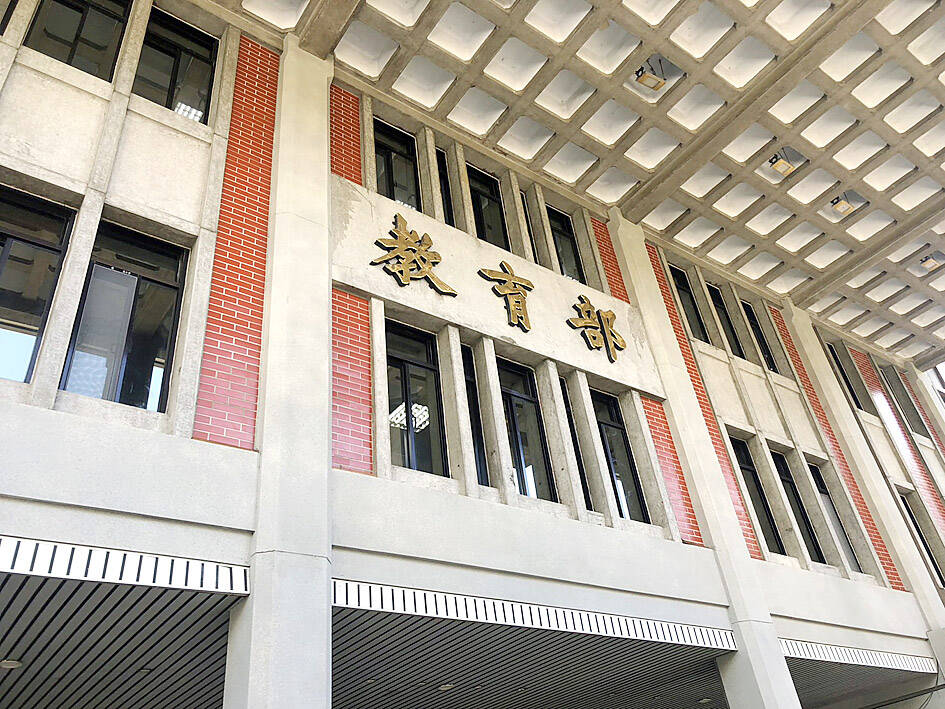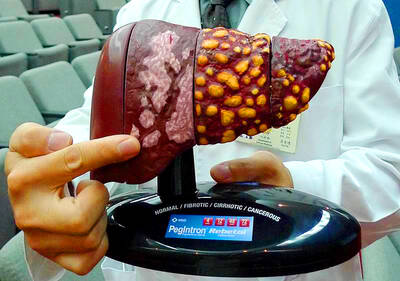An annual NT$35,000 (US$1,120) subsidy for private college tuition and miscellaneous costs went into effect on Thursday, President Tsai Ing-wen (蔡英文) announced in a Facebook post that day.
Students studying in private colleges are to see the subsidy on their tuition fee bill for an amount of NT$17,500 per semester (or NT$35,000 per year), Tsai said.
The subsidy intends to bridge the gap between private and public university tuition fees and is the main component of the “Education Equality 1+3 Scheme,” Tsai wrote in the post, referring to the subsidy and three supporting measures approved by the Cabinet in June last year.

Photo: Rachel Lin, Taipei Times
The first measure is an additional subsidy for economically disadvantaged students at private and public universities.
Students from families with household incomes of NT$700,000 or less are to receive an additional NT$20,000 subsidy annually, while those in the NT$700,000 to NT$900,000 income bracket are to receive NT$15,000 per year, the Cabinet’s Facebook post said.
Other measures include scrapping all high school and vocational high school fees, as well as relaxing eligibility requirements and repayment terms for student loans, Tsai said.
The tuition fee gap has been an important consideration for many students when choosing their future field of study, she said, adding that high tuition fees in private universities have also been burdensome for students and their families.
It was a hindrance to students’ freedom to choose what they study and which schools based on what best suits them, she said.
Tsai added that she worked with president-elect Vice President William Lai (賴清德) and Premier Chen Chien-jen (陳建仁) to come up with the plan to relieve the financial pressure on young Taiwanese and their families.

The Taipei Summer Festival is to begin tomorrow at Dadaocheng Wharf (大稻埕), featuring four themed firework shows and five live music performances throughout the month, the Taipei Department of Information and Tourism said today. The festival in the city’s Datong District (大同) is to run until Aug. 30, holding firework displays on Wednesdays and the final Saturday of the event. The first show is scheduled for tomorrow, followed by Aug. 13, 20 and 30. To celebrate the 30th anniversary of Disney Pixar's movie Toy Story, the festival has partnered with Walt Disney Co (Taiwan) to host a special themed area on

Aftershocks from a magnitude 6.2 earthquake that struck off Yilan County at 3:45pm yesterday could reach a magnitude of 5 to 5.5, the Central Weather Administration (CWA) said. Seismological Center technical officer Chiu Chun-ta (邱俊達) told a news conference that the epicenter of the temblor was more than 100km from Taiwan. Although predicted to measure between magnitude 5 and 5.5, the aftershocks would reach an intensity of 1 on Taiwan’s 7-tier scale, which gauges the actual effect of an earthquake, he said. The earthquake lasted longer in Taipei because the city is in a basin, he said. The quake’s epicenter was about 128.9km east-southeast

BE CAREFUL: The virus rarely causes severe illness or death, but newborns, older people and those with medical conditions are at risk of more severe illness As more than 7,000 cases of chikungunya fever have been reported in China’s Guangdong Province this year, including 2,892 new cases last week, the Centers for Disease Control (CDC) yesterday said it is monitoring the situation and considering raising the travel notice level, which might be announced today. The CDC issued a level 1 travel notice, or “watch,” for Guangdong Province on July 22, citing an outbreak in Foshan, a manufacturing hub in the south of the province, that was reported early last month. Between July 27 and Saturday, the province reported 2,892 new cases of chikungunya, reaching a total of 7,716

STAY VIGILANT: People should reduce the risk of chronic liver inflammation by avoiding excessive alcohol consumption, smoking and eating pickled foods, the physician said A doctor last week urged people to look for five key warning signs of acute liver failure after popular producer-turned-entertainer Shen Yu-lin (沈玉琳) was reportedly admitted to an intensive care unit for fulminant hepatitis. Fulminant hepatitis is the rapid and massive death of liver cells, impairing the organ’s detoxification, metabolic, protein synthesis and bile production functions, which if left untreated has a mortality rate as high as 80 percent, according to the Web site of Advancing Clinical Treatment of Liver Disease, an international organization focused on liver disease prevention and treatment. People with hepatitis B or C are at higher risk of